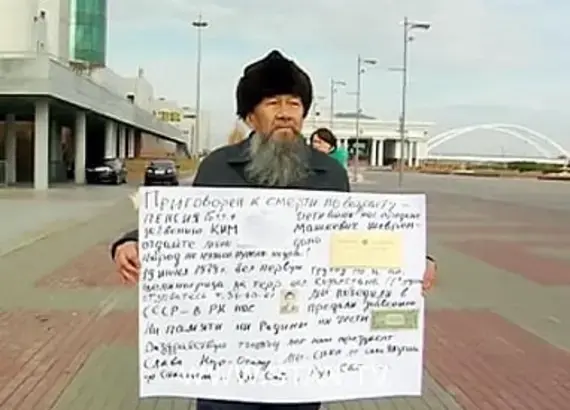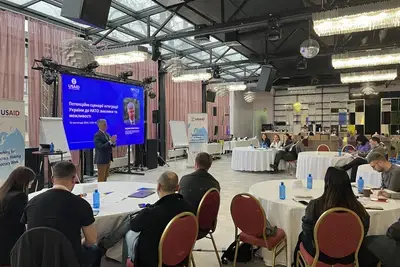
Success Story
Freedom of Assembly Rights Limited in Kazakhstan, Study Finds
A year-long examination of freedom of assembly in Kazakhstan found the government cracking down on nearly all forms of political expression, according to a report released in December by the Kazakhstan International Bureau for Human Rights and Rule of Law, a partner organization of NDI.
The report, Freedom of Peaceful Assembly in Kazakhstan: Authorization Denied, was released Dec. 13, at an international conference in Astana, the capital, that attracted an unprecedented level of Kazakhstani government involvement, but also highlighted the country's lack of progress on freedom of information. Joining the dialogue were representatives of the Kazakhstani Parliament and president's office, as well as domestic nongovernmental organizations, international organizations and diplomatic missions. Participants discussed the bureau's recommendations contained in draft legislation designed to create more political freedom around peaceful assembly and protest, with government representatives pledging to work with NDI and civil society organizations to make improvements.
The gathering was convened by NDI in cooperation with the Organization for Security and Cooperation in Europe (OSCE), the Friedrich Ebert Foundation, and the Kazakhstani Presidential Commission on Human Rights.
The study focused on how assembly rights were carried out during Kazakhstan's chairmanship of the OSCE, the world's largest regional security organization encompassing 56 states from Europe, Eurasia and North America. When Kazakhstan assumed the chairmanship in January 2010, human rights activists hoped that the attendant attention and prestige would spur Kazakhstan to increase political freedoms. But that turned out not to be the case, the report said.
The report noted that the system for regulating assembly in Kazakhstan completely eliminates any freedom for citizens to peacefully assemble and express their opinions. "Harsh methods are used to prohibit any display of civic engagement, whether it is an assembly, a picket, or simply a meeting of activists that is held indoors," the report said.
Kazakhstani law regards holding a picket or hunger strike, or erecting a tent or other installation, as tantamount to holding an assembly. Distributing leaflets, joining spontaneous demonstrations known as 'flash mobs,' wearing t-shirts or carrying umbrellas with political signs or slogans, or laying flowers at memorials are considered to be "form[s] of expressing public, collective or personal interests and protest," according to the report. Any gathering where citizens discuss social or political issues requires permission from local authorities.
The political loyalty of applicants for assembly permits is officials' main consideration in deciding whether to grant permission. The study found no cases in which members of pro-government parties were prevented from holding an assembly or public event. Opposition parties, on the other hand, were almost always denied permission, although sometimes they were allowed to hold assemblies in specially designated areas far from where they might have an audience.
As a result, unauthorized assemblies are on the rise in Kazakhstan. In 1995, when the law regarding assembly took effect, unauthorized assemblies did not exceed 40 percent of the total; by 2009, 80 percent of assemblies were unauthorized, and during the 11 months of 2010 that the report analyzes, unauthorized assemblies had grown to 84 percent of the total.
The report also found that "the excessive use of force by police and severe punishments imposed by the courts against those who organize and participate in unauthorized assemblies are disproportionate to any threat to public security." The bureau found that law enforcement agencies and judicial bodies often arrest the organizers of peaceful assemblies, obstruct the assemblies, issue warnings, impose fines, and jail organizers and participants for up to 15 days.
Related:
Pictured above: Kazakhstan restricts many forms of assembly, including individuals holding signs in public places. Photo courtesy of Stan Video Portal.
Published January 5, 2011



